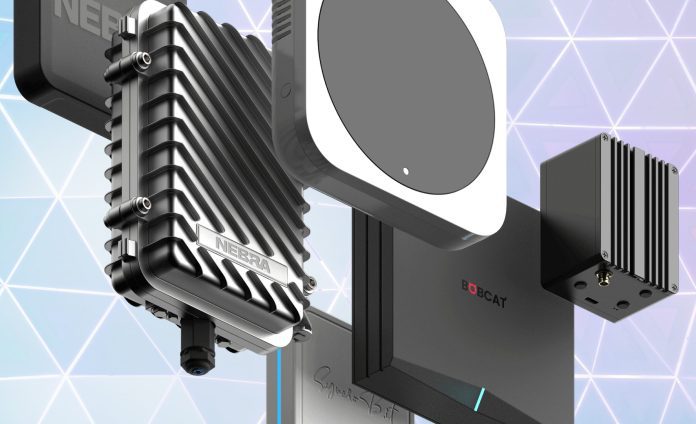Helium has followed roaming deals with LoRaWAN operator Senet in the US and LoRaWAN platform provider Actility in Europe with a new roaming tie-up with LoRaWAN provider X-TELIA in Canada. San Francisco-based Helium uses a blockchain model to crowd-source LoRaWAN coverage, where LoRaWAN hotspots, including those from the likes of X-TELIA, mine its HNT cryptocurrency token for providing coverage and carrying data.
Hotspot owners earn HNT tokens for their parts in Helium’s so-called ‘people’s network’, mining HNT tokens for accumulated data transfers and ‘proof-of-coverage’ transactions. The network uses an algorithm to reward users for verifying coverage, and thereby proving location and network connectivity. Hotspots also earn HNT by transferring data from nearby devices over the network; the more data that is transferred, the more that is earned.
The firm claims to connect 513,000 compatible LoRaWAN hotspots in 38,000 cities internationally, each owned by private individuals. The latest count is up from 215,000 hotspots in 19,000 cities in October last year, and around 175,000 in the US in September. The firm, which previously focused on selling hotspots, works with a roster of approved hotspot manufacturers.
The arrangement with X-TELIA, which designs and sells LoRaWAN solutions, will see its LoRaWAN devices roam onto Helium’s LoRaWAN network. The firm, the only LoRa Alliance member based in Quebec, also runs a LoRaWAN network in Canada and a LoRaWAN platform – called IoT HUB – for managing data and devices.
Its IoT solutions are geared for sundry tracking and monitoring in cities, buildings, infrastructure, agriculture, and various industrial sectors. A press note flagged deployments to track climate change, snow removal, flood warnings, water meters, sea temperatures, and livestock.
Helium signed the same deal, effectively, with Paris-headquartered Actility, a mainstay of the LoRaWAN community, in October, to allow Actility’s LoRaWAN devices, in the form of network gateways, to work on the Helium network. Interoperability is achieved through Actility’s ThingPark Exchange peering hub. The deal extends Helium’s coverage into 25 Actility-based LoRaWAN networks, covering public and private LoRaWAN networks in multiple countries.
These include LoRaWAN networks owned by Orange in France, KPN in the Netherlands, Proximus in Belgium, and Swisscom in Switzerland. Actility has private deployments with Accenture, Bouygues Construction Group, Cisco, Quuppa, Olympus, the Red Sea Development Company, Schneider Electric, Veolia, and Volvo. Of note, the Bouygues setup is for tracking 20,000 pieces of equipment using Actility’s Abeeway sensors.
Volvo is using Abeeway sensors to optimize its yard management at truck plants in France and the US. The Red Sea Development Company is deploying over 39,000 LoRaWAN trackers for construction workers and vehicles to help with employee safety in Saudi Arabia. The Abeeway line of LoRaWAN devices is now compatible with Helium’s hotspots, too.
The arrangement with Senet in the US, signed the month before, in September, also means Senet’s IoT customers can make use of the Helium network; for Helium’s hotspot operators, as with the X-TELIA and Actility deals, it promises more network traffic. Senet is also offering integration services with third-party LoRaWAN networks, alongside wholesale LoRaWAN plans for US cellular operators.
The new ‘extended coverage’ offering has seen new partnerships with unnamed operators, vendors, and infrastructure providers, it said. Senet claims to be processing “well over one billion” transactions on its network annually; it claims it is the only “national, public, carrier-grade” LoRaWAN network in the US, in 29 states and 1,300-odd cities.
The number of IoT devices worldwide is forecast to almost triple to more than 25.4 billion devices by 2030, said Helium, quoting numbers from Statista.
On the X-TELIA deal, Eric Bourbeau, co-founder and chief executive at the Canadian firm, commented: “We understand the power of IoT in achieving new levels of insight and efficiency and have made it our mission to make it accessible to industries, businesses and cities across Canada. By leveraging the power of the Helium network we are now able to provide clients with a global network, allowing our fleet and asset tracking customers to track their assets internationally.”
Amir Haleem, co-founder and chief executive at Helium, said: “Democratizing access to the internet has been Helium’s core mission since inception. As we continue to grow the world’s largest decentralized wireless network on a global scale, we are proud to partner with companies like X-TELIA whose commitment to expanding access to IoT connectivity resonates with our mission. We are excited to welcome X-TELIA and their customers to roam on the Helium Network.”

